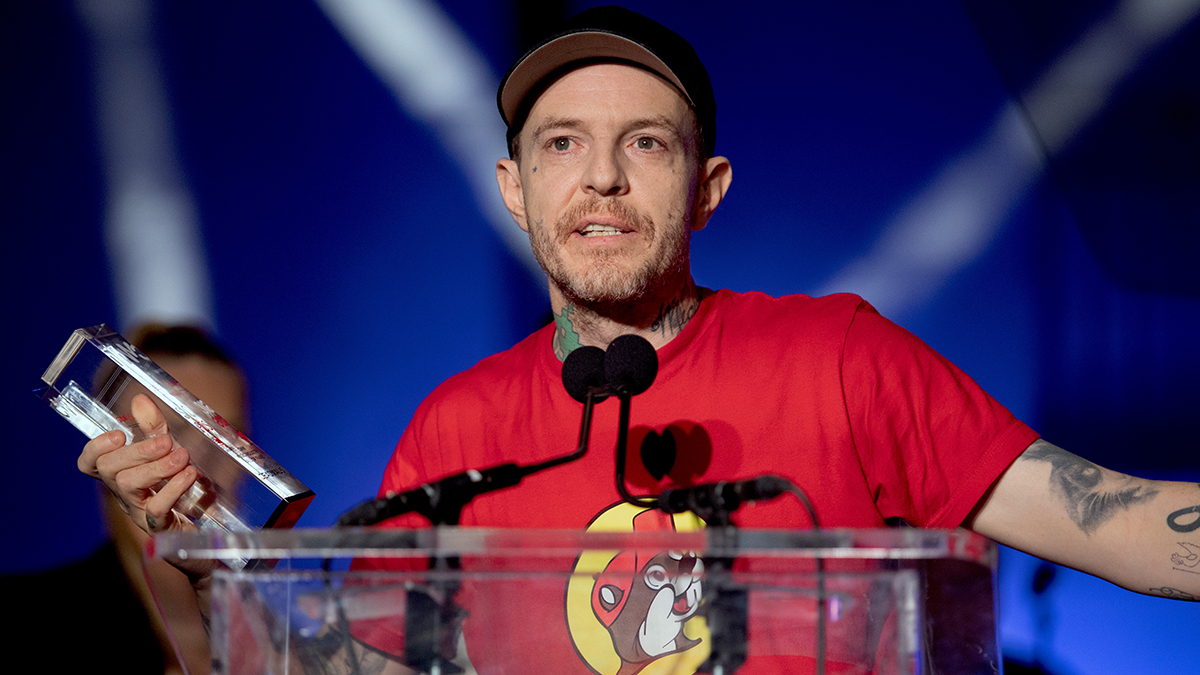"I don't really enjoy dance music. I don’t get excited about it… but I love the process of making it”: deadmau5 on being here for the “technical challenges and sonic development”, and how his interest in music production was sparked by Tears for Fears
“In my time of existence, so much has changed for electronic music,” he says as he looks back on his 25-year career
The past 25 years might have seen him become one of the most well-known names and faces on the electronic music scene - despite the fact that he’s spent who-knows-how-much of that time wearing a big-eared helmet - but deadmau5 has admitted that consuming dance music isn’t really something that he’s got a lot of time for.
"I don't really enjoy dance music," the man born Joel Zimmerman told CBC. "I don't partake. I don't pump it in my car. I don’t walk it, I don’t talk it, I don’t breathe it, I don’t get excited about it… but I love the process of making it. I like the technical challenges. I like sonic development."
Recently inducted into the Canadian Music Week’s Music Industry Hall of Fame, deadmau5 is in the midst of a ‘retro5pective’ tour that celebrates his quarter century of music production and performance. And, it turns out that it was a British pop band that helped to spark his interest.

Zimmerman says that his introduction to music came when his dad brought home a new hi-fi and about eight random CDs, and there was one in particular that made an impression.
"The one that really appealed to me was the Tears for Fears one," he confirms. "There was so much accompaniment to it that just wasn't somebody beating on a drum or playing a guitar or a keyboard or something like that. There's always just some underlying machine behind it."
The boy Zimmerman soon established that what he was listening to was a collection of drum machines and synthesizers, but his dream of owning one of these instruments - or a device that would enable him to create similar sounds - seemed distant.
"This was at a time when computers were not capable of recording music," Zimmerman points out,” highlighting that he couldn’t just “go to Best Buy” and pick up a synth. “In my time of existence, so much has changed for electronic music,” he adds. “I was right there, like… none of the stuff is available. I either have to wait and hope that these things get invented, or I have to go and start figuring out what these guys are doing - this Tears for Fears stuff.”
Want all the hottest music and gear news, reviews, deals, features and more, direct to your inbox? Sign up here.
Zimmerman did eventually manage to get hold of enough gear to make music with, though. Asked when he started to play in public, he says: “When I had enough equipment that I could kind of wire things together to do a sort of half-baked live performance version of some of my stuff.”
He goes on to confirm that his first gig was a high school talent show: “I brought a Roland sampler keyboard and I did this like, Nine Inch Nails cover,” he recalls. People thought it was “cool”, he says, but they were also confused at what he was actually doing.
Elsewhere in the interview, Zimmerman touches on the way that the sound of electronic music has been shaped by the technology used to make it.
“You can ask any dance music producer who’s been doing it for 10 years: listen to your first track and then listen to your last track. And they’ll be like ‘oh, it’s night and day’, and it’s because somewhere in those years some technology was invented or applied or used in a certain way that has just totally shifted everything, sonically.”
Tour dates and tickets for deadmau5’s upcoming shows are available via his website.



I’m the Deputy Editor of MusicRadar, having worked on the site since its launch in 2007. I previously spent eight years working on our sister magazine, Computer Music. I’ve been playing the piano, gigging in bands and failing to finish tracks at home for more than 30 years, 24 of which I’ve also spent writing about music and the ever-changing technology used to make it.
